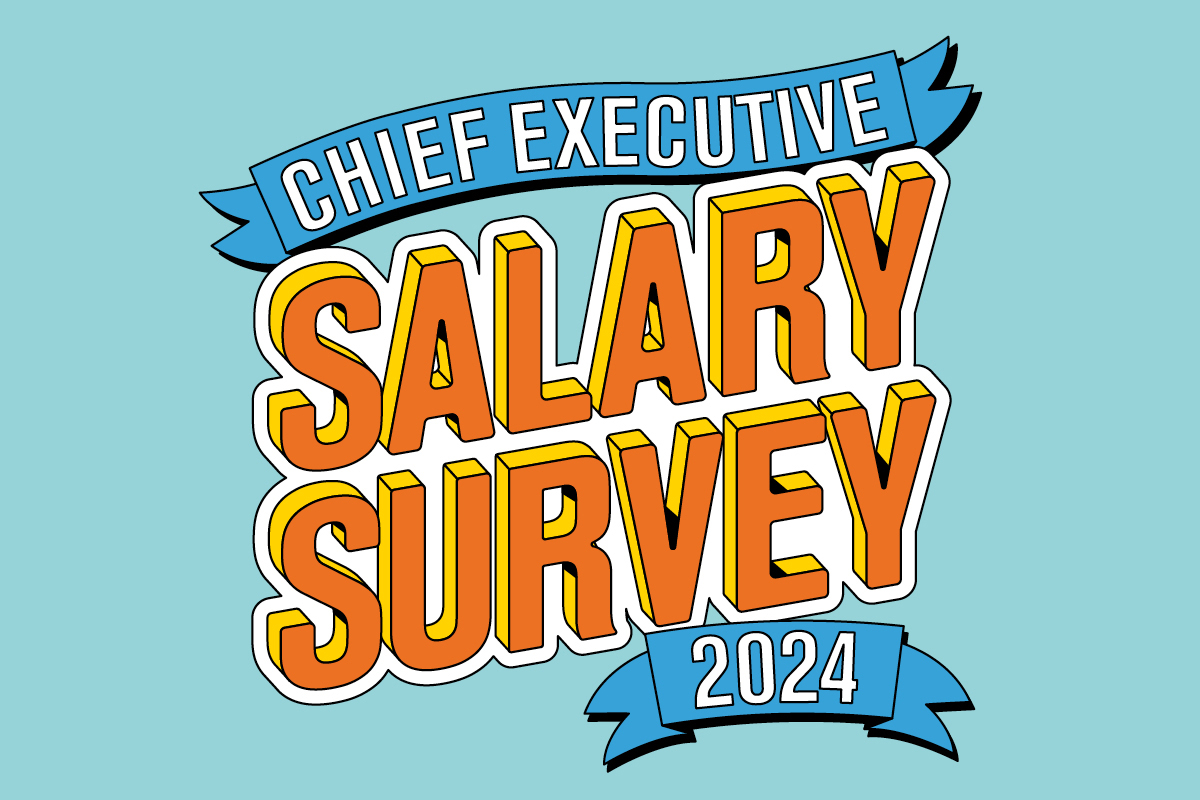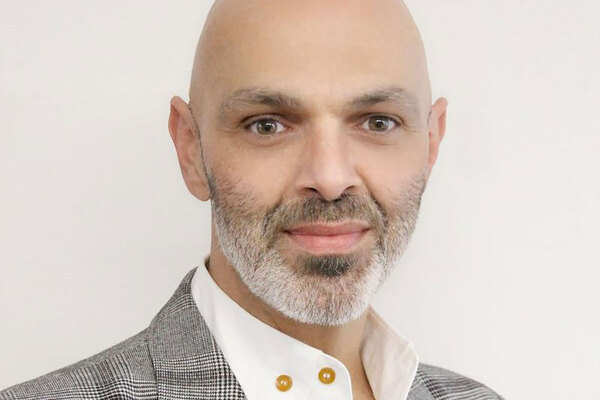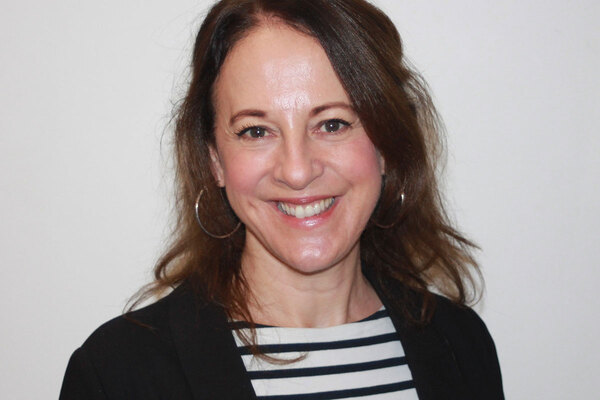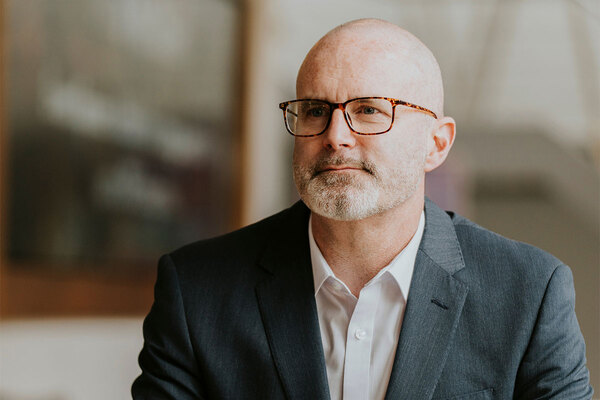Inside Housing Chief Executive Salary Survey 2024
Inside Housing’s annual survey reveals the salaries and other pay of the chief executives of more than 160 of the biggest housing associations in the UK, along with the current gender pay gap at the top of the sector. Jess McCabe reports. Illustration by Season of Victory
How much were the chief executives of the 162 biggest housing associations in the UK paid? Inside Housing’s annual Chief Executive Salary Survey is published today, to answer this question.
Our survey covers pay in the top jobs in housing in the 2023-24 financial year, and is based on a survey of those housing associations, combined with data published in their financial accounts.
So, what has happened to the pay of the sector’s senior leaders, during a tumultuous period for the sector and the economy? And what insight does the survey give us into gender and ethnicity pay splits at the top level?
But first, what is the overall trend? The median basic pay of a chief executive in our survey is now £170,385 – a 3.5% rise on the previous year. This is a smidgen above inflation (3.2%, according to the Consumer Price Index).
Median total pay for a housing chief has risen 6.0%, to £185,000. This includes their basic salary, but also any bonus, car allowance and payments in lieu of the employer contributing to their pension plan.
Chief executives’ salaries, 2023-24
Source: Inside Housing survey
Notes: Scroll to the end of the article to see footnotes
Highest earners
Greg Reed, chief executive of Places for People (PfP), once again topped the table as the highest-paid in the sector, taking home £565,426. This is made up of £412,400 in basic pay – the same as the previous year. However, Mr Reed’s total pay was down 10%, after he took home a bonus of £134,030, roughly £20,000 less than the previous year.
Commenting on the pay award, a PfP spokesperson said: “The independent Places for People remuneration committee sets executive remuneration, and it is confident that PfP gets value for money because of the quality of leader we attract and retain to deliver the best outcomes for our customers and communities, and the right results for our people and business.”
Methodology
Inside Housing sent a detailed survey to the 162 biggest housing associations in the UK, about how much they paid their chief executives in the 2023-24 financial year. We used their responses, in combination with data from their financial accounts where the association declined to respond, to produce this article.
Total salary is calculated as basic pay, plus any bonuses, car allowance and – where applicable – payment of a cash sum in lieu of pension contributions.
Where a chief executive has left during the year, we have posted details of the outgoing holder of the post.
Second on the list is also the same as last year: Clare Miller, chief executive of Clarion, who was paid £447,439 in total. This is a 1.4% increase on the year prior, much below inflation.
Jock Lennox, the association’s group chair, told Inside Housing: “Given the scale of our organisation and the contribution it makes to the delivery of much-needed new housing our country desperately needs, the board believes Clare’s package presents excellent value for money. Clare continues to lead the group through what continues to be a most challenging time for our sector.”
Top 10 biggest bonuses
Source: Inside Housing survey
Notes: Scroll to the end of the article to see footnotes
Orbit’s chief executive Phil Andrew took home the fifth-highest pay in the sector. The association said in a statement: “Our people are central to delivering the services and support our customers expect from us. We cannot deliver one without the other. That is why it’s important that we attract highly skilled and experienced colleagues who share a passion for our purpose, and we use independent benchmarking to ensure that pay is appropriate when measured against comparable organisations of a similar size and complexity.”
They also note that Orbit has its own direct-build development team, and extensive support services. “Our group CEO therefore has extensive and significant responsibility,” they say.
Top pay rises
Source: Inside Housing survey
Notes: Scroll to the end of the article to see footnotes
Wheatley Group’s chief executive Steven Henderson decided to take a reduced pay packet of £80,000 – with no bonus or car allowance. This represents a 70.8% reduction on the £274,277 pay awarded to the previous chief executive of Wheatley, Martin Armstrong, in his last year in the job.
Mr Henderson declined to comment, other than to say through a press spokesperson that the pay cut was a “personal decision”. This makes 96,000-home Wheatley Group’s chief the lowest-paid housing boss in our survey. To put it in context, compare this to the second-lowest-paid CEO, Bryony Willett, who leads another Glasgow housing association – Maryhill – with only 3,100 homes. She took home £100,884. This also makes Wheatley the lowest pay as a percentage of turnover, and pay per home.
Benchmarking pay
Midland Heart, whose chief executive Glenn Harris was paid £352,000 in total, the ninth-highest in the sector, sent a statement which reflects common practice on how pay packets are decided. “Our chief executive’s pay, like all other members of our executive board, is independently benchmarked by a third-party organisation, who make recommendations to our remuneration committee,” the spokesperson says.
Top 10 highest earners
Source: Inside Housing survey
Notes: Scroll to the end of the article to see footnotes
Likewise, Stonewater, whose chief executive Nicholas Harris is in the top 10 biggest bonuses, said in a statement that his compensation package was “in line with leaders of housing associations of a similar size and complexity”.
We also break down the five highest – and lowest – pay packets, in proportion to the number of homes and turnover of organisations. Bill Flood, erstwhile chief executive of Mount Green before its merger with Stonewater, comes out as the highest-paid by both these metrics (Mr Flood has stayed on, now as managing director of Mount Green). A spokesperson for Mount Green says: “Mr Flood’s total pay for 2023-24 decreased by over 5% compared to the previous year’s report.”
Big rises
Who had the biggest pay rises of the year? The top spot this year was taken by Murray Macdonald, the former chief executive of Lincolnshire Housing Partnership (LHP). Mr Macdonald received £239,407 in his final year leading the 12,000-home association, according to its annual accounts. This represented a 58.4% increase on 2022-23. Mr Macdonald left the organisation in February 2024, before the end of the financial year. LHP said that Mr Macdonald’s salary during this time was £161,193, and declined to comment further.
The second-highest pay rise went to Emma Palmer. The chief executive of Eastlight Community Homes saw her basic pay rise 5% to £195,000. But Ms Palmer also received a £68,250 bonus. Eastlight described this as a one-off payment, “in recognition of her work over a three-year period, delivering on the commitments made when Greenfields Community Housing and Colne Housing merged to form Eastlight in 2020”.
The third-highest pay rise went to Andy Hulme, chief executive of Hyde. Mr Hulme’s 32.8% pay rise took his total pay to £409,000, and also made him the third-highest-paid chief executive in the sector. This data has been taken from the organisation’s financial accounts, and Hyde did not wish to comment.
Plymouth Community Homes’ (PCH) former chief executive John Clark also appears in the top 10 biggest pay rises. All staff at PCH received a 5% cost of living pay rise during 2023-24, according to a spokesperson. “In addition to this, the CEO and the executive director salaries were reviewed and independently benchmarked during the year, a process which had not taken place for some time and was necessary to support with recruitment. As a result of both, the CEO’s salary saw a larger-than-usual increase reported at year end in March 2024. It is written into PCH’s pay policy that the CEO’s salary will not exceed 10 times the lowest-paid role in the organisation, and this remains the case.”
Placement on the highest-paid by turnover and number of homes tends to reflect the economics of scale of a small organisation, combined with specific differences between associations.
Take Ocean Housing, for example, whose chief executive Mark Gardner is on this list. Deputy chief executive Kevin Pearce says: “Ocean Group’s turnover of £43.7m includes £15.1m from its residential developer subsidiary. The developer subsidiary accounts for over one-third of the group’s turnover. A significant element of the group chief executive’s salary is charged to the commercial subsidiary, so the actual cost borne by tenants is substantially lower as a consequence.”
Highest pay as percentage of turnover
Source: Inside Housing survey
Notes: Scroll to the end of the article to see footnotes
Julie Guildford Smith, chief executive of Honeycomb Group, is also in the top five pay by number of homes. A spokesperson says: “The chief executive salary reflects the unique and diverse group DNA, and not the homes managed by its social housing provider Staffs Housing.” Honeycomb also runs charities that focus on domestic abuse and homelessness, and a home support specialist.
Mike Kay, chair of Greatwell Homes, says that the association – which ranked third-highest for pay as a percentage of turnover – bases the salary on median benchmarked levels. He adds: “Our chief executive’s salary fairly reflects the responsibilities of the role.”
Lowest pay as percentage of turnover
Source: Inside Housing survey
Notes: Scroll to the end of the article to see footnotes
Gender and diversity
Just under 41% of the chief executives of the biggest housing associations are women (out of 125 associations that provided demographic data on their leaders). Median pay for female chief executives was £185,241. For male chiefs, by contrast, it was £195,549. This represents a £10,000 pay difference between women and men in top jobs – or 5.6%.
A total of 6% of chief executives identified as disabled. This profoundly differs from the residents living in social housing – in England, 54% of households who socially rent have a member who is disabled, or has a long-term illness. Among new tenants, the figure is 18%.
Highest pay per home
Source: Inside Housing survey
Notes: Scroll to the end of the article to see footnotes
When it comes to race, 86% of chief executives for whom we have data identify as white. However, the next most popular answer – 10.4% – was “prefer not to say”. Only one chief executive identified as Black. Two identified as Asian, and three as mixed race. The small numbers make it impossible to compare average or median pay, but re-underline questions that the sector has been asking on the representation of Black, Asian and ethnic minority people in leadership positions.
On sexuality, 76% of CEOs identified as heterosexual. Another 19% selected “prefer not to say”. Six identified as lesbian or gay, and none as bisexual.
Update: at 5.00pm, 24.10.24
This article originally stated that Honeycomb Group’s operations include a care provider. This is incorrect, and has been updated to reflect the fact that Honeycomb runs a ‘home support specialist’ service.
Lowest pay per home
Source: Inside Housing survey
Notes: Scroll to the end of the article to see footnotes
Notes
- Salaries rounded to nearest pound.
- Percentage changes rounded to one decimal place.
- Total salary includes car allowance, bonus and cash paid in lieu of pension.
- Where a CEO has left during an accounting period, an annualised figure is used to allow comparison.
1. Silva Homes merged with Abri during 2023-24; number of homes includes all of Silva’s units.
2. Taken from financial accounts.
3. Data on highest-paid director comes from financial accounts. The previous year’s figures relate to a combination of former chief executive Alastair MacGregor and Ms Mundie’s time in post, and include a crossover period, which may explain the percentage reduction.
4. Total pay includes a flexible benefit payment.
5. Kevin Bolt left the organisation on 30 April 2023. He was replaced on 1 May 2023 by Richard Hill, who received an annual basic salary of £230,000, no bonus and a car allowance of £8,000.
6. Taken from financial accounts, refers to highest-paid director.
7. Pay increase includes a 5% cost of living increase, and an additional percentage increase using market data to align salaries with the market rate.
8. Data taken from financial statements and relates to pay of the highest-paid director. Carron Garmory became CEO in August 2023, taking over from Lynn Wassell. For this reason, the figure likely does not cover the full year, which might explain the apparent reduction in pay year on year.
9. Includes a higher-performance award, overseen by Coastline’s board. Eligibility is assessed against a balanced scorecard criteria that includes financial and non-financial targets. This award is structured over a three-year period, with payments in the first two years out
of a maximum of 7.5%, and in the third year a maximum of 15%. 2023-24 was the third year of the scheme.
10. Richard Woolley left Connexus on 9 November 2023 and was replaced by Kate Smith, who started on 29 January 2024.
11. Includes a one-off bonus in recognition of the chief executive’s work over a three-year period, delivering on the commitments made when Greenfields Community Housing and Colne Housing merged to form Eastlight in 2020.
12. Anne McLoughlin moved into the interim CEO role in August 2023 and is paid via an agency. First Choice Homes Oldham was unable to provide data on her take-home pay.
13. Tim Mulvenna replaced Lindsey Williams as chief executive on 12 July 2024.
14. Taken from financial accounts.
15. Includes a mobile phone allowance of £420.
16. Data taken from financial accounts.
17. Hilary Roberts retired in February 2024. Her pay has been annualised. Brian Moran was appointed as new CEO in December 2023.
18. Taken from financial accounts.
19. Taken from financial accounts. Mr Macdonald resigned in February 2024, so figures
may not represent the full financial year.
20. Mary Gibbons left Moat on 9 February 2024. Steve Nunn was appointed acting chief executive on 5 March 2024.
21. Mount Green merged with Stonewater on 1 February 2024, at which point Mr Flood became managing director.
22. Data taken from financial accounts.
23. Octavia refused to respond to our survey.
24. Ian Mitchell is the MD for housing at One Vision and the highest-paid director.
25. Includes a flexible benefit payment.
26. Includes an adjustment to chief executive pay which is backdated to April 2021 to match raises given to other staff – the 11% increase is made up of a 1% pay award in 2021, a 5% pay award in 2022 and a 5% pay award in 2023.
27. John Clark left Plymouth Community on 30 September 2023, and was replaced by Jonathan Cowie on 4 September 2023.
28. Total pay includes a payment in lieu of pension of 12.5%.
29. Data is based on financial accounts.
30. Includes an allowance in lieu of pension contributions based on 12% of salary.
31. Ms Arrowsmith held post of interim chief executive until 14 September 2023, and the association paid agency fees of £143,575 plus VAT in respect of this. Amanda Newton was appointed as the permanent chief executive on 18 September 2023 and was paid £86,000 in basic pay for the remainder of the year.
32. 2022-23 has also been changed to figure from accounts to ensure comparability.
33. Shepherds Bush merged to become a subsidiary of Guinness in December 2023.
34. In October 2023, Silva merged with Abri and Mr Ward joined Abri’s executive. His basic pay and car allowance have been annualised.
35. Data taken from financial accounts.
36. Larry Gold took over as chief executive on 10 April 2023, on a basic salary of £150,000, and was not paid a bonus or a car allowance that year.
37. Includes a bonus paid in 2023-24 which related to the performance from 2022-23.
38. Total pay includes payment in lieu of pension contributions.
39. Total includes payment in lieu of pension.
40. Data is based on financial statements.
41. Figures taken from 2023 annual report and financial statement.
42. Year-on-year comparison is with the pay of previous chief executive Martin Armstrong.
Recent longform articles by Jess McCabe
A night shelter for trans people struggles to find funding
Jess McCabe reports from The Outside Project’s new transgender-specific emergency accommodation, as it prepares to open its doors. Why is this accommodation needed, and what has the organisation learned from almost a decade of running LGBTQ+ homelessness services?
Reset Homelessness: ‘The system cannot continue as it is’
Inside Housing and Homeless Link’s new campaign, Reset Homelessness, calls for a systemic review of homelessness funding in England. But how has spending on the homelessness crisis gone so wrong? Jess McCabe reports
A day on site with MTVH’s new chief executive
Jess McCabe spends the morning with Mel Barrett, Metropolitan Thames Valley’s new chief executive, touring its flagship regeneration project in south London. In his first major interview, he talks through his early plans for the association
Overcrowded and on the waiting list: the family housing crisis and what can be done to solve it
Within the housing shortage, one group is particularly affected: families in need of a larger home. But how big is the demand? And how can building policy and allocations change, to ease the problem? Jess McCabe investigates
Who has built the most social rent in the past 10 years?
Jess McCabe delves into the archives of our Biggest Builders data to find out which housing associations have built the most social rent homes
Biggest Council House Builders 2024
For the second year running, Inside Housing names the 50 councils in Britain building the most homes. But is the rug about to be pulled on council development plans? Jess McCabe reports
Inside Housing Chief Executive Salary Survey 2024
Inside Housing’s annual survey reveals the salaries and other pay of the chief executives of more than 160 of the biggest housing associations in the UK, along with the current gender pay gap at the top of the sector. Jess McCabe reports
Sign up to our Best of In-Depth newsletter
We have recently relaunched our weekly Long Read newsletter as Best of In-Depth. The idea is to bring you a shorter selection of the very best analysis and comment we are publishing each week.
Already have an account? Click here to manage your newsletters.












